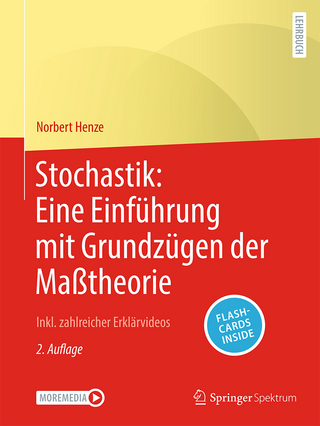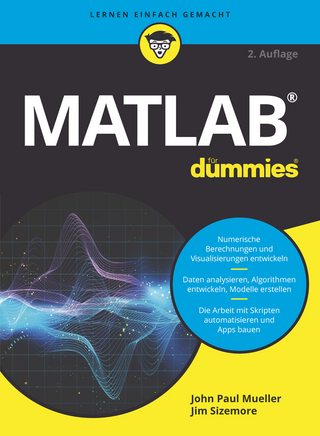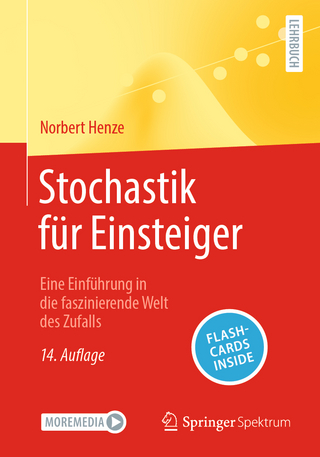
The Theory of Response-Adaptive Randomization in Clinical Trials
Wiley-Interscience (Verlag)
978-0-471-65396-7 (ISBN)
Presents a firm mathematical basis for the use of response-adaptive randomization procedures in practice The Theory of Response-Adaptive Randomization in Clinical Trials is the result of the authors' ten-year collaboration as well as their collaborations with other researchers in investigating the important questions regarding response-adaptive randomization in a rigorous mathematical framework. Response-adaptive allocation has a long history in biostatistics literature; however, largely due to the disastrous ECMO trial in the early 1980s, there is a general reluctance to use these procedures.
This timely book represents a mathematically rigorous subdiscipline of experimental design involving randomization and answers fundamental questions, including:
How does response-adaptive randomization affect power?
Can standard inferential tests be applied following response-adaptive randomization?
What is the effect of delayed response?
Which procedure is most appropriate and how can "most appropriate" be quantified?
How can heterogeneity of the patient population be incorporated?
Can response-adaptive randomization be performed with more than two treatments or with continuous responses?
The answers to these questions communicate a thorough understanding of the asymptotic properties of each procedure discussed, including asymptotic normality, consistency, and asymptotic variance of the induced allocation. Topical coverage includes:
The relationship between power and response-adaptive randomization
The general result for determining asymptotically best procedures
Procedures based on urn models
Procedures based on sequential estimation
Implications for the practice of clinical trials
Useful for graduate students in mathematics, statistics, and biostatistics as well as researchers and industrial and academic biostatisticians, this book offers a rigorous treatment of the subject in order to find the optimal procedure to use in practice.
FEIFANG HU, PhD, is Associate Professor in the Department of Statistics at the University of Virginia. He is the recipient of numerous grants, honors, and awards. His research interests include biostatistics, applied probability and statistical inference, and resampling methods. He has authored over forty refereed articles. WILLIAM F. ROSENBERGER, PhD, is Professor and Chair of the Department of Applied and Engineering Statistics at George Mason University. He received the Association of American Publishers' Professional/Scholarly Publishing Award in 2002 for his coauthored work, Randomization in Clinical Trials: Theory And Practice (Wiley). A Fellow of the American Statistical Association, he has authored over fifty refereed articles and edited two monographs.
Dedication. Preface.
1. Introduction.
1.1 Randomization in clinical trials.
1.2 Response-adaptive randomization in a historical context.
1.3 Outline of the book.
1.4 References.
2. Fundamental Questions of response-Adaptive Randomization.
2.1 Optimal allocation.
2.2 The realtionship between power and response-adaptive randomization.
2.3 The relationship for K > 2 treatments.
2.4 Asymptotically best procedures.
2.5 References.
3. Likelihood-based Inference.
3.1 Data structure and Likelihood.
3.2 Asymptotic properties of maximum likelihood estimators.
3.4 Conclusion.
3.5 References.
4. Procedures Based on Urn Models.
4.1 Generalized Friedman's urn.
4.2 The class of ternary urn models.
4.3 References.
5. Procedures Based on Sequential Estimation.
5.1 Examples.
5.2 Properties of procedures based on sequential estimation for K = 2.
5.3 Notation and conditions for the general framework.
5.4 Asymptotic results and some examples.
5.5 Proving the main theorems.
5.6 References.
6. Sample Size Calculation.
6.1 Power of a randomization procedure.
6.2 Three types of sample size.
6.3 Examples.
6.4 References.
7. Additional Considerations.
7.1 The effect of delayed response.
7.2 Continuous responses.
7.3 Multiple (K > 2) treatments.
7.4 Accommodating heterogeneity.
7.5 References.
8. Implications for the Practice of Clinical Trials.
8.1 Standards.
8.2 Binary response.
8.3 Continuous responses.
8.4 The effect of delayed response.
8.5 Conclusions.
8.6 References.
9. Incorporating Covariates.
9.1 Introduction and examples.
9.2 General framework and asymptotic results.
9.3 Generalized linear models.
9.4 Two treatments with binary responses.
9.5 Conclusions.
9.6 References.
10. Conclusions and Open Problems.
10.1 Conclusions.
10.2 Open problems.
10.3 References.
Appendix A: Supporting Technical Material.
A.1 Some matrix theory.
A.2 Jordan decomposition.
A.3 Matrix recursions.
A.4 Martingales.
A.5 Cramér-Wold device.
A.6 Multivariate martingales.
A.7 Multivariate Taylor's expansion.
A.8 References.
Appendix B: Proofs.
B.1 Proofs theorems in Chapter 4.
B.2 Proof of theorems in Chapter 5.
B.3 Proof of theorems in Chapter 7.
B.4 References.
Author Index.
Subject Index.
| Erscheint lt. Verlag | 5.9.2006 |
|---|---|
| Reihe/Serie | Wiley Series in Probability and Statistics |
| Zusatzinfo | Tables: 0 B&W, 0 Color; Graphs: 9 B&W, 0 Color |
| Sprache | englisch |
| Maße | 162 x 241 mm |
| Gewicht | 467 g |
| Themenwelt | Mathematik / Informatik ► Mathematik ► Wahrscheinlichkeit / Kombinatorik |
| Medizin / Pharmazie ► Allgemeines / Lexika | |
| ISBN-10 | 0-471-65396-9 / 0471653969 |
| ISBN-13 | 978-0-471-65396-7 / 9780471653967 |
| Zustand | Neuware |
| Haben Sie eine Frage zum Produkt? |
aus dem Bereich


